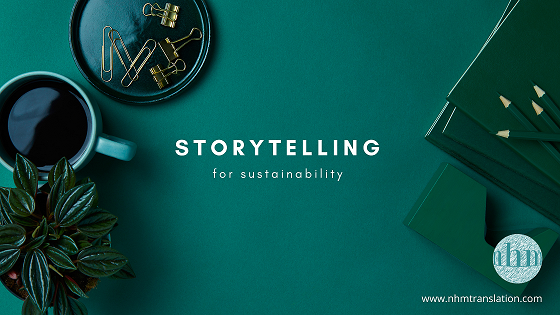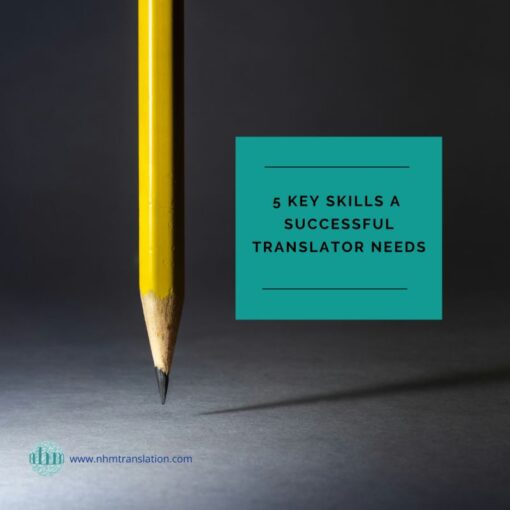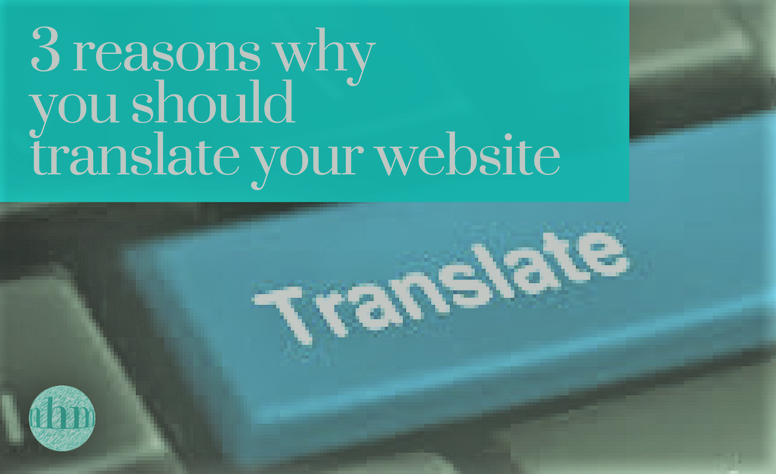I recently listed to an episode of the Advancing Sustainable Solutions podcast called Storytelling for Sustainability and, as a translator, the perspective of how we can use stories to inspire and connect emotionally resonated with me. I regularly work with clients who use stories, either through blogs, articles, videos or their websites – to connect. Using a narrative to communicate can more powerfully capture the reader or listener’s attention and cut through the information overwhelm we all face today.
So what makes a good story?
Think of any timeless story or movie classic. It more than likely has a Setting, Characters, a Plot, a Conflict and a Resolution. More recently, Jeff Leinaweaver, author of Storytelling for Sustainability: Deepening the Case for Change argues that a sixth characteristic of storytelling should be taken into account – Memory. How we recall our past affects how we perceive and configure the different components of a story.
Taking a storytelling approach rather than just presenting the facts can be a powerful tool to transition to a more sustainable future. Stories have a way of sparking emotional understanding that facts don’t. Facts on their own are not necessarily inspiring but wrapping facts in an engaging and compelling way can inspire action, activate more of our brain and create connection.
Understanding what climate neutral cities might look like
In his role helping Swedish cities become carbon neutral, Per Grankvist, Chief Storyteller of Viable Cities says storytelling can enable people to change their behaviour, allow them engage, to envision and make sense of a different future. It is a way of seeing what is possible. For example, showing people how life would be different in a low carbon world can give people hope. He also advises that sustainability stories need to be told in a local context. Storytelling can help communicate knowledge about climate change, but these stories cannot necessarily be universally translated, they need to speak to the emotions and connections people have with their own cities.
This also reflects the important human dimension of a translator’s work; understanding context and localising content so that it speaks to the heart of the target audience and elicits a response. A machine may be able to translate numbers and facts but only a human translator can convey the meaning of stories in a way that truly resonates with others.
Make stories personal and simple in order to engage
One example cited in the podcast was the Carbon Ruins exhibition in Sweden. This is an extract from the website describing the exhibition.
Imagine it is 2053. The Swedish government has just opened its landmark museum FOSSIL with its first exhibition ‘Carbon Ruins’. The exhibition and its grand opening is a celebration of the fact that global net-zero emissions of carbon dioxide were reached in 2050. Sweden, in line with its 2017 targets, reached net-zero emissions of greenhouse gases already in 2045, being the first country in the world to step out of the fossil era, which globally lasted between 1849 and 2049.
‘Carbon Ruins’ aims to transport the visitor into a future where transition to post-fossil society has already happened. By focusing on recognizable objects, the exhibition bridges the gap between the daily lives of humans and the abstract impacts of climate change.
Storytelling is an ancient practice and an invaluable skill. Yet storytelling for sustainability can be challenging because the stories are not yet complete. However, we can still inspire change by giving our stories a beginning, a middle, and an ending that demonstrates hope for the future. For sustainability practitioners who want to be more strategic and have greater influence in transitioning to a brighter, greener future, storytelling is a key skill. It can attract attention and get results, whether you are communicating statistics and priorities, advocating for change, working with stakeholders, or building an authentic brand.
Please get in touch if you would like to discuss translating and localizing your sustainability stories into English.





 English
English